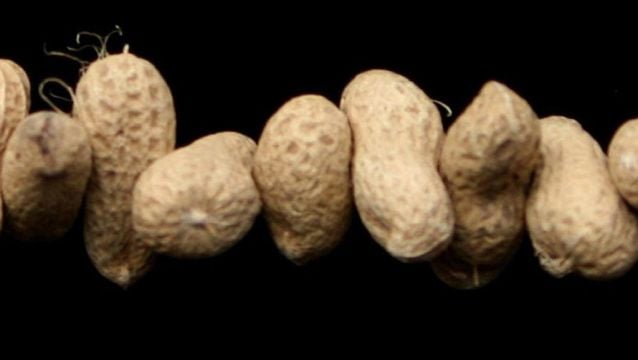People with a peanut allergy have been warned to avoid eating products containing mustard because they may have been contaminated.
The Food Safety Authority of Ireland (FSAI) were notified by the Food Standards Agency (FSA) in the UK that batches of mustard powder and mustard flour imported from India to the UK have been found to contain undeclared peanut protein.
The FSAI, in the interest of protecting consumers in Ireland, as a precaution, have advised anyone with a peanut allergy or suspected peanut allergy not to eat any products containing mustard as an ingredient.
They have further reminded affected customers to check labelling on products prior to consumption.
Mustard ingredients can be found in food such as dips, sauces, salads and pre-packed sandwiches, the FSA said.
Such mustard products could contain traces of peanuts, potentially causing severe reactions for those with an allergy.
The UK agency is urgently working with the relevant local authorities, individual businesses and industry to identify which products may be affected.
“We have traced the contaminated mustard ingredients to a producer in India called GT Agro Industries and have identified one company who has supplied these ingredients for use in UK food,” the FSA said.
The UK company affected, FGS Ingredients Ltd, has advised customers to remove from sale products containing the contaminated mustard ingredients.
There is no evidence other suppliers are affected so far, the agency added.
“If mustard is present in a food, it should be labelled in bold on the packet because it is an allergen itself,” the FSA advised.
“If there is a risk that mustard could be unintentionally present in food there will be a ‘may contain’ label for mustard."
Mustard is also a priority food allergen in the EU and therefore, must be declared for pre-packed food and for non-pre-packed food when used as an ingredient.
“If you are eating out, please ask the café or restaurant staff if any of their products contain mustard – by law, food businesses must provide this information to customers," the FSA said.
FSA’s director of food policy, Rebecca Sudworth, said: “Those with a peanut allergy should avoid consuming products containing mustard as an ingredient until we identify the individual products affected.
“Parents and carers of children who have a peanut allergy should take care to check the labels of food they buy and, if eating out, or getting a takeaway, ask the restaurant or cafe about foods that might contain mustard.
“As soon as we have more information, we will update consumers. As always, we urge people with an allergy to sign up to our allergy alerts, so you can be notified about future allergy recalls.”
The investigation is ongoing and the FSAI is liaising closely with the UK agency.
Earlier this week, two food allergen alerts were issued by the FSAI about the possible presence of peanuts in specific batches of Domino's Garlic & Herb dip, Domino's Mustard and Honey dip and Carlos Takeaway Garlic & Herb dip.
These alerts were linked to this contamination, and the FSAI said that additional food allergen alerts will be issued if any additional implicated products are found to be on sale in Ireland.
Additional reporting: PA







